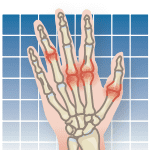If your arthritis has progressed to the point that cartilage damage is so extensive, non-surgical treatments are unlikely to be successful. If you have tried the usual non-surgical treatments-rest, physical therapy, icing, and anti-inflammatory medications-without relief, total shoulder replacement may be your best option. The procedure is very effective, and most patients regain full use of their shoulders, with normal strength within a few months. There are several types of shoulder replacement procedures. Usually, the arthritic joint surfaces are replaced with a metal ball, attached to a stem, and a plastic socket. Depending on the severity of arthritis in each of the joint surfaces, only the humeral component (ball) may be used. Your orthopaedist can determine which type of shoulder replacement is most appropriate for you.
To continue reading this article or issue you must be a paid subscriber.
Sign in





























